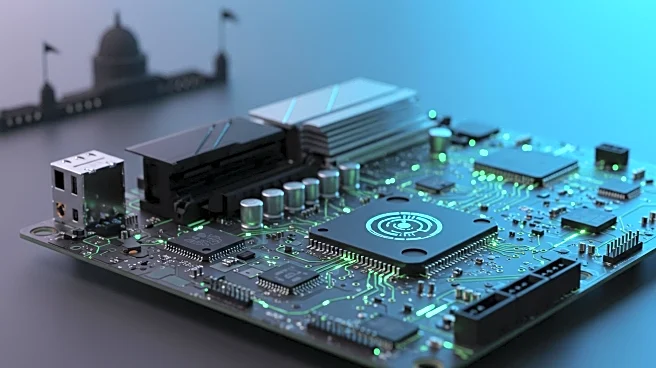What's Happening?
Intel CEO Lip-Bu Tan and the U.S. government are reportedly in early discussions about the possibility of the government taking a financial stake in Intel. This development follows a meeting between President Trump and Tan at the White House. The talks are in preliminary stages, with Intel labeling them as rumors. The discussions come after President Trump called for Tan's resignation, influenced by a letter from Republican Senator Tom Cotton. Cotton's letter accused Tan of having concerning ties to the Chinese Communist Party and controlling numerous Chinese companies, some allegedly linked to the Chinese military. The letter also highlighted past illegal activities by Cadence Design Systems, where Tan was previously CEO, involving unauthorized sales to a Chinese military university. Cotton demanded Intel address these concerns, especially in light of the $8 billion CHIPS Act funding it received.
Why It's Important?
The potential U.S. government stake in Intel could significantly impact the semiconductor industry, especially as Intel plans a $28 billion chip complex in Ohio. Government involvement might provide Intel with the necessary support to enhance its competitiveness in advanced chip manufacturing. However, the controversy surrounding Tan's alleged ties to China raises national security concerns, which could affect public and political trust in Intel. The situation also underscores the broader geopolitical tensions between the U.S. and China, particularly in technology and manufacturing sectors. Stakeholders in the semiconductor industry, including competitors and policymakers, will closely monitor these developments.
What's Next?
If the U.S. government proceeds with taking a stake in Intel, it could set a precedent for government involvement in private tech companies, especially those critical to national security. The outcome of Senator Cotton's inquiries and Intel's response could influence the direction of these discussions. Additionally, any formal agreement would likely require regulatory approval and could face scrutiny from both political leaders and industry experts. The situation may also prompt other tech companies to reassess their international ties and compliance with U.S. security laws.











